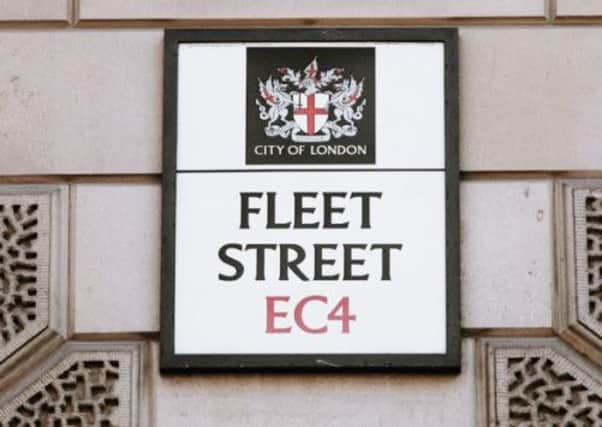Leveson: UK press rejects Government proposals


The government’s proposed Royal Charter, agreed in late-night talks last month between the three main parties, is “unworkable” and enjoys “no support within the press”, the industry warned.
But the press charter, which differs in several key details from the cross-party plan, was denounced as “desperate” by the Hacked Off campaign for press curbs.
Advertisement
Hide AdAdvertisement
Hide AdThe pressure group said it would produce a regulator which was no less an “industry poodle” than the much-criticised Press Complaints Commission (PCC).
The Privy Council Office will now look at the industry proposals, with guidance from UK Culture Secretary Maria Miller.
But it is understood that Mrs Miller remains committed to the cross-party proposals, and it was thought unlikely that yesterday’s development will derail plans to put the Royal Charter to the Queen for approval at the next meeting of the Privy Council on 15 May.
In a statement co-ordinated by the Newspaper Society, publishers of national and local newspapers and magazines said that the government proposals would give politicians “an unacceptable degree of interference in the regulation of the press”, while the industry’s charter would allow the recommendations of last year’s Leveson report to be implemented swiftly “without any form of state-sponsored regulation that would endanger freedom of speech”.
While both plans envisage a Royal Charter establishing a recognition panel to accredit a press self-regulation body, there are a number of important differences:
• The press charter states that the recognition panel must include a member with experience and understanding of the industry.
• The government’s charter can only be changed by a two-thirds majority of both Houses of Parliament, but the press version could be altered with the unanimous support of the panel, regulator and trade associations.
• The press charter allows the regulator to refuse to look into complaints which have “no justification” or are simply an attempt to lobby. It gives the regulator the power to “require” the publication of corrections, rather than “direct” their size and prominence.
Advertisement
Hide AdAdvertisement
Hide Ad• Under the industry proposal, the committee drawing up a new press code of conduct would have a majority of serving editors, rather than the one-third in the cross-party charter.
• The industry proposals remove a clause that would ban members of the House of Lords or anyone involved in politics in the last five years from sitting on the appointments board, chaired by a former Supreme Court judge, which would select members of the recognition panel.
Crucially, there would be a public consultation on the industry’s proposals to allow newspaper and magazine readers to have their say – something which is not being offered in the government-sponsored scheme.
A Department for Culture, Media and Sport spokesman said: “The Privy Council office will need to look at this proposal. We have already set out a draft Royal Charter which has cross-party agreement.”
But Hacked Off was unimpressed. Under the industry charter, “editors would have a veto on all appointments, they would be able to pick and choose which complaints to respond to, they would be able to bury corrections in the back pages and they would continue to write their own rule-book”, warned the group.
Meanwhile, after a cross-party meeting of MSPs to discuss press regulation in Scotland, cabinet secretary for culture Fiona Hyslop said: “The Scottish Government welcomed the consensus previously reached by Westminster on proposals for a Royal Charter on press regulation and hopes this can be maintained.” of devolved assemblies and ministers would be barred from joining either the appointments committee or the recognition panel.